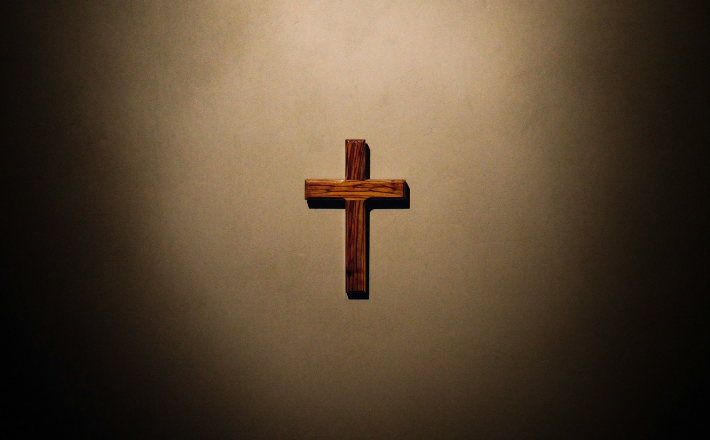Commentary on Deuteronomy 30:15-20
In Deuteronomy 30:15–20, Israel is presented with a stark and decisive call: “See, I have set before you today life and good, death and evil.” The covenantal choice between life and death, blessing and curse, is framed as a matter of agency—of choosing rightly in response to God’s command. Traditionally, this passage has been read as affirming the capacity of human will to discern and pursue the good. Yet when read through the lens of Pentecost, the meaning of this appeal deepens. The imperative to choose does not disappear; it is redefined. The gift of the Spirit does not render human agency irrelevant, but reconfigures it—transforming a command into a Spirit-enabled vocation.
The biblical vision of this transformation draws directly from the prophetic promises of Jeremiah and Ezekiel. No longer will God’s law be external to the people—written on tablets of stone, imposed from without. Instead, it will be inscribed upon their hearts, animated by God’s own Spirit (Jeremiah 31:33; Ezekiel 36:26–27). The call to covenant fidelity remains, but the means by which it is sustained is no longer human effort alone. In the wake of Pentecost, the will is no longer left to strive unaided. Rather, it is drawn into relationship with the indwelling presence of God. Agency is not erased but renewed. The Spirit enables what the law could only demand: not just obedience, but communion.
This reframing of human freedom is central to Paul’s vision of life in the Spirit. When he exhorts the church to “walk by the Spirit” (Galatians 5:16) and describes the “fruit of the Spirit” (Galatians 5:22–25), he is not pointing to virtues achieved through sheer moral effort. These are signs of a life animated by God’s presence. What the Deuteronomic covenant required is now made possible by divine empowerment. The moral choice—still real, still urgent—is now made within a different framework. The believer is not left to agonize between options from a position of isolation, but is summoned into a living relationship in which the very act of choosing is made possible by grace.
This does not mean that human responsibility is dissolved. On the contrary, the freedom the Spirit grants is a freedom for faithfulness. It is a liberation from fear, sin, and self-enclosure, not a detachment from responsibility. The will is not bypassed but restored to its true purpose: to love, trust, and respond to God. To choose life after Pentecost is not simply to comply with divine instruction but to step into a relationship where divine initiative and human response meet. What appears a human decision is, at a deeper level, a movement prompted and sustained by God’s Spirit.
In this way, Deuteronomy 30:15–20 speaks powerfully into the liturgical season known as Ordinary Time—the period following Pentecost that stretches across the majority of the church year. This season is not marked by dramatic festivals or decisive moments of salvation history but by slow, steady growth. It is the time when the church learns to live what it has received. Within this context, the call to choose life is not a one-time command but a daily orientation. It becomes a repeated act of turning toward God and resisting the habits, systems, and tendencies that diminish life.
Ordinary Time, then, is anything but ordinary. It is the season of the Spirit’s ongoing work—quiet, persistent, often unnoticed. Choosing life becomes a practice rooted in the mundane: forgiving when it is easier to hold a grudge, showing compassion when indifference is more convenient, honoring the dignity of others in a world that too often reduces people to status, productivity, or identity. These are not just acts of private virtue; they are expressions of a life formed by the Spirit. They bear witness to a new kind of freedom—one that is not self-asserted but Spirit-shaped.
The church’s witness in this season is therefore not primarily about achieving moral perfection or following rules. It is about inhabiting a life that is shaped by God’s presence. The people of God are called to be a community through whom the world can see what it means to choose life. And this choosing is never merely personal. As Deuteronomy 30:19 makes clear, the call is for the sake of generations: “so that you and your descendants may live.” After Pentecost, this generational vision becomes deeply missional. The church, filled with the Spirit, is not simply a gathered community but a sent one. Its faithfulness must extend beyond internal devotion to public witness.
To choose life in the age of the Spirit is to participate in God’s renewing work in the world. It is to build communities where justice is practiced, creation is honored, and the vulnerable are protected. It is to bear fruit that fosters the flourishing of others—not just spiritually but socially and ecologically. The church’s fidelity must overflow into structures, relationships, and practices that reflect the life of Christ. This is not an abstract idea; it is a tangible vocation. In a world marked by fragmentation, violence, and despair, the church is called to embody the possibility of life, healing, and hope.
This kind of life cannot be sustained by moral effort alone. It requires a deeper source. The law inscribed on the heart is not a symbolic metaphor—it is the concrete reality of God’s Spirit dwelling within. The church does not follow God at a distance. It lives in communion with God, and from that communion comes the capacity to choose rightly, to live justly, and to love deeply.
Therefore, the exhortation to choose life is not diminished by the coming of the Spirit—it is intensified. The same covenantal summons is extended, but now it is met with an even greater provision. The God who sets life before us also dwells within us, making the path possible. This is the calling of the church in the time after Pentecost: to live not merely by willpower, but by the Spirit; not out of obligation, but in response to grace; not in isolation, but as a covenant people whose life is a witness to the living God.
To choose life, then, is not simply to affirm a set of values or obey a moral code. It is to live a life shaped by divine presence, a life that generates life in others. It is to receive the Spirit’s gift of freedom—not as autonomy but as the capacity to respond, to serve, and to love. It is to become, both individually and communally, a living testimony to the God who continues to choose life for the world.


September 7, 2025